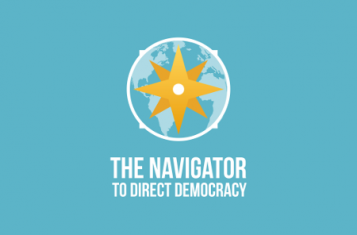In late spring 2013, the Green Party and Alternattiva Demokratika formed a coalition with twelve environmental and animal rights organisations to utilise a long-neglected right in the Maltese Referendum Act, which allows a legal enactment to be repealed by a majority popular vote through a citizen-initiated referendum. This referendum can only be called once a formal petition is presented containing the signatures of 10 per cent of the national voting population. The coalition through these means seeking to put an end to spring hunting in Malta once and for all.
To date, well over the necessary 35,000 signatures have been collected, which might mean the 2014 Malta Spring hunting season will be the last one ever. All that remains at this stage is the vetting of all signatures by the Electoral Commission of Malta. Backed by 60% of the voting population according to scientific polls, the Green Party’s and the coalition’s only remaining headache is ensuring voter turnout on the day.
Eventual success in this venture is not limited to the apparent. The first major environmental coalition in over ten years, successful fruition might hopefully serve to consolidate the environmental movement in Malta, which has for too long been fragmented over conflicting strategies and priorities. It is perhaps no coincidence that a number of the same organisations joined forces again late last year for a relatively well-attended public demonstration against further countryside encroachment. With luck this referendum will do to environmental awareness what the 2011 consultative referendum introducing divorce legislation seems to have done to public and political discourse on civil rights since. Perhaps more resoundingly, since this will be an abrogative referendum called by the people and giving a direct mandate to the people.
Spring hunting in Malta
Besides animal rights and environmental sustainability, bird hunting in Malta also carries a strong social dimension. In a country where over 400,000 must share a total area of 316km², of which over one third is built environment, access to open spaces is further restricted by hunting activities, both inside and outside sanctioned hunting hours. In addition to the ubiquitous hazard posed to ramblers and hikers, hunters have been known to cordon off entire areas of public land and place private property notices at entry points. They also prove a constant annoyance to many farmers by trampling over their crops.
In 2009, the European Court of Justice ruled that Malta had failed in fulfilling obligations laid down in Council directives and regulations from 2004 to 2009, thus declaring the Spring hunting seasons in those years illegal. The Birds Directive however allows the possibility of applying derogations under certain conditions, including a government’s commitment to strictly supervise hunting. Malta reacted by applying such derogation and introducing a number of measures to try and satisfy the Bird’s Directive after 2010, such as limiting hunting to a capped amount of turtle dove and quail, shortening the season, enforcing the use of identification armbands to by worn by licensed hunters, requesting SMS reports to be submitted by hunters for every kill, and increased police presence.
Most of these measures were however waived again by the new Labour government, elected last March, in order to fulfil its electoral promises to the hunting lobby. It removed the compulsory wearing of identification armbands, lengthened the autumn season and extended peak migration period curfew by four hours.
This relaxation, coupled with a long tradition of lax enforcement, has led to ever-increasing instances of abuse, namely hunting outside sanctioned hours, killing of protected species and underreporting by hunters. In addition to these abuses, the spring hunting season, even in its sanctioned form, puts an additional strain on dwindling turtle dove and quail populations at a time when they are migrating back to their European breeding grounds.
Text by Reuben Zammit
More information on the Maltese referendum law are provided by the Navigator to Direct Democracy. Check it out here.

